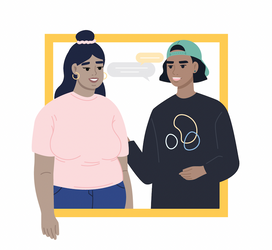Plan your gathering
You've identified a need for this in your community, now think through the nuts and bolts of what you'll require to host a seamless gathering:
- Space - where will you host your event? Perhaps you have a specific space in mind which will inform how many attendees you can host. Perhaps you rather have a specific number of attendees in mind and would like to secure a space based on that. It's up to you! Remember you'll need access to WiFi and space for attendees to use their laptops/devices
- Date - when will you host your event? Consider the date and time of your event, and when works best for maximum attendance from your community. We recommend structuring the gathering over half a day (morning or afternoon) and ideally over the weekend.
- Agenda - what will the structure of the gathering be? Familiarise yourself with the materials so that you're able to lead the group through the process. Perhaps you'd like to add your own spin on the event with a special welcome, a reflective discussion or any other mental health related activity. Creating a draft agenda will help you define the remainder of your needs.
Remember, the purpose of this gathering is to create space for greater empathic understanding and to enable peer support and connection, it is not a medical service.
Invite your community
It's time to get the word out there!
- Consider who: will you invite anyone and everyone? Or would you like to be more specific for your event, perhaps an age group or perhaps you already meet as a specific group and would like to retheme one of your existing meetings?
- Consider how: depending on who you'd like to invite, think about how you'll advertise to them. You may need to create some marketing materials. You could keep it as simple as a Whatsapp message, or, you could create a physical or digital flyer and get sharing the word! Think about where community news is already shared and how you might utilise these platforms.
Host the event
The day is here to host your event! Here are some pointers to consider:
- Decor: you certainly don't need transform the space, but make sure you've got enough seating and tables for people to work easily. Creating a cosy environment is often a more conducive way for attendees to feel comfortable and welcome. Some gentle background music can also assist this ambience!
- WiFi: you'll need a good connection to ensure all attendees can access the content seamlessly. We recommend testing speeds and the connection prior to guests arriving.
- Welcome: it's likely that many attendees won't know what to expect and might feel intimidated. Perhaps taking the time to do a welcome message will settle their nerves. Here are some ideas:
- Welcome them to the event and explain your purpose and intent
- Give them a clear understanding of what will be taking place and when
- Consider doing an ice-breaker or 'check-in' exercise to loosen people up
- Content: make sure you are familiar with both sets of tools and exactly how you'd like people to engage with the content. For example:
- The A.S.K. videos will likely not exceed 20 minutes - do you want people to walk through this exercise individually, in pairs, or as one collective? Do you want people to reflect as you go or afterwards? Access tips, activities and a social media shareable at http://www.asktohelp.com/learn
- The Be There Certificate will be closer to 2 hours - will you plan breaks inbetween content? If so, at what points? Similarly, will you build in a reflection exercise here to see what bubbles up for attendees?
- See the 'resources' section of this page for some additional supporting resources:
-
Be There Certificate Educator's Guide (available in English): this includes more detail and references for the course material, as well as suggestions for when leading a group of people through signing up on the site and earning their Be There Certificate
-
Be There Certificate Social Toolkit (available in English, Spanish, French): this includes suggestions for sharing once you've earned your certificate and inviting others to do the same
-
Be There Certificate printable postcard (available in English, French, and Spanish).
- Catering: if the event will take place over a half a day, it would be nice to have some basic snacks and beverages for attendees. It could even be a bring and share! Or, have the kettle ready and some simple snacks for during a break.
Remember, the purpose of this gathering is to create space for greater empathic understanding and to enable peer support and connection, it is not a medical service.
Follow up with attendees
Certain insights and emotions might have bubbled up for attendees as they worked through the content and connected with others. You don't want these attendees feeling lost, isolated or discouraged after the event. We recommend following up with attendees after the event. There are number of ways you could do this:
- One on one through a direct message or invitation to meet up
- Sending a simple poll or survey inviting reflection and feedback
- Thanking attendees for their attendance, courage and commitment to priortise mental health in your community
- Sharing helpful resources that encourage attendees to keep thinking about the topic
Remember - community and peer support can have a huge positive effect supporting someone struggling with their mental health, but it’s in no way a replacement for medical or professional mental health services. To find professional and vetted professionals where you are, head to www.mentalhealthishealth.tv
Keep up the momentum
A one off event is never a solution - your gathering should be the kickstarter to addressing mental health more sustainably in your local community. Try think about other strategies that can keep the momentum growing, such as:
- Could you host simplified recurring meet-ups for this group and others?
- Could you setup a Whatsapp or social media group that encourages connection?
- Could you host another event just like this, and get each previous attendee to invite someone new to increase the upskilling in your community?
- Could you get attendees to share their experience with others and on their platforms using #AskToHelp to add to the global movement?









